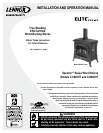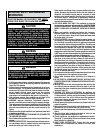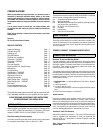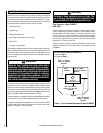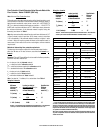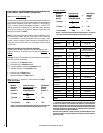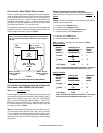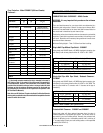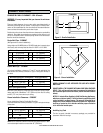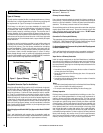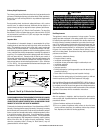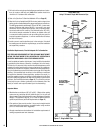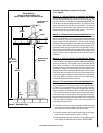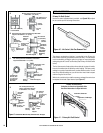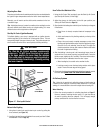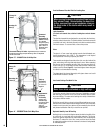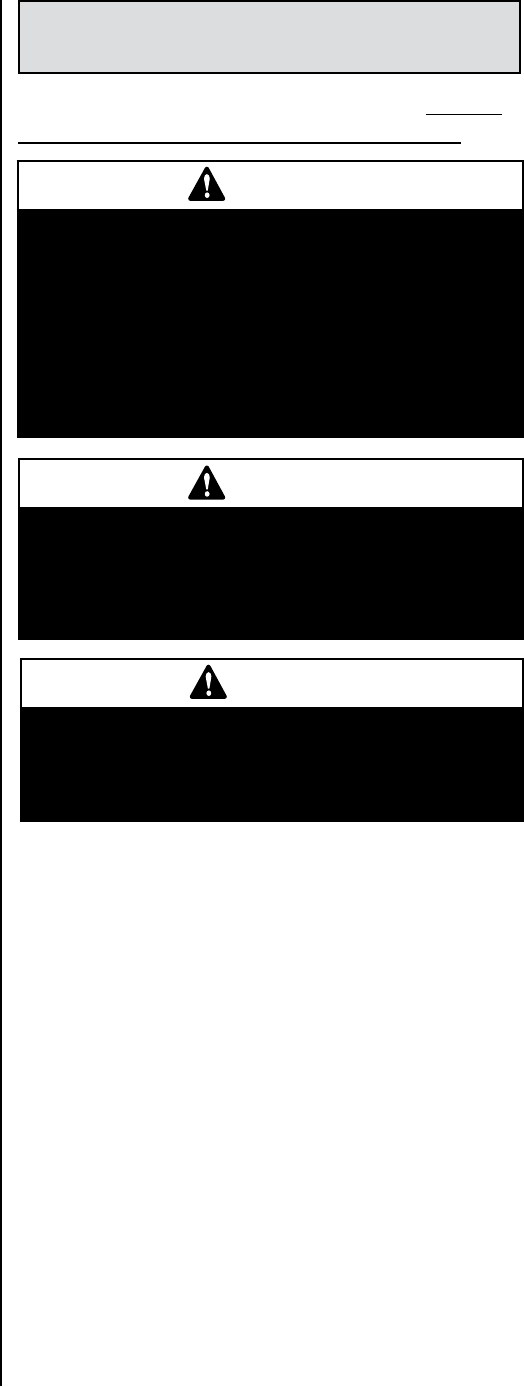
2
IMPORTANT SAFETY AND WARNIING
INFORMATION
READ THIS MANUAL IN ITS ENTIRETY AND UNDER-
STAND THESE RULES TO FOLLOW FOR SAFETY
.
WARNING
Do not attempt to alter or modify the construction of
the appliance or its components. Any modification
or alteration may void the warranty, certification
and listings of this unit.
CAUTION
Read this manual thoroughly before starting instal-
lation. For your safety, follow the installation,
operation and maintenance instructions exactly
without deviation. Failure to follow these instruc-
tions may result in a possible fire hazard and will
void the warranty. If this appliance is not properly
installed, a house fire may result. Contact local
building or fire officials about requirements and
installation inspection in your area.
WARNING
Improper installation, adjustment, alteration, ser-
vice or maintenance can cause injury or property
damage. Refer to this manual. For assistance or
additional information consult a qualified installer,
service agency or the gas supplier.
1. If utilizing an older chimney, it must be inspected for adequate
serviceability. Refer to the heading Chimney Inspection on
Page 10 of this manual.
2. The minimum clearances must be maintained for all com-
bustible surfaces. The following materials should be kept a
minimum of 36 inches (914 mm) from the heater; furniture,
carpet, drapes, clothing, wood, papers, etc. Do not store
firewood within this clearance space. Failure to maintain
clearances to all combustibles may result in a house fire.
3. This appliance requires floor protection as out-lined in this
manual (see Floor Protection on Pages 4 through 8).
4. WARNING: improper installation, adjustment, alteration,
service or maintenance can cause injury or property damage.
This appliance must be properly installed or the listing will be
void. Installations other than those specifically covered herein
have not been confirmed by test and are not covered by the
listing.
5. Minimum ceiling height must be 5 feet (measured from base
of appliance to ceiling).
6. DO NOT CONNECT THIS UNIT TO A CHIMNEY FLUE CONNECTED
TO ANOTHER APPLIANCE.
7. Do not connect this appliance to air ducts or any air distribution
system.
8. PREVENT CREOSOTE FIRE: Inspect and clean chimney connec-
tor and chimney daily for creosote build-up until experience
shows how often you need to clean to be safe
Under certain conditions of use, creosote buildup may occur
rapidly. Be aware that the hotter the fire the less creosote is
deposited, and weekly cleaning may be necessary in mild
weather even though monthly cleaning may be enough in
the coldest months. Using green or inadequately seasoned
wood can greatly increase creosote buildup. Use dry wood to
minimize creosote buildup.
9. USE SOLID WOOD FUEL ONLY: This appliance is approved
for burning dry seasoned natural wood only. CAUTION: BURN
UNTREATED WOOD ONLY. DO NOT BURN GARBAGE OR FLAM-
MABLE FLUIDS SUCH AS GASOLINE, NAPHTHA OR ENGINE
OIL.
10.Never use gasoline, gasoline-type lantern fuel, kerosene,
charcoal lighter fluid, or similar liquids to start or “freshen
up” a fire in this heater. Keep all such liquids well away from
the heater while it is in use.
11.DO NOT OVERFIRE: If heater or chimney connector glows, you
are overfiring. Overfiring this appliance could cause a house
fire. Overfiring is a condition where the appliance is operated
at tem-peratures above its design capabilities. Overfiring can
be caused by improper installation, improper operation, lack
of maintenance or improper fuel usage. Do not operate the
stove with the doors open or ajar, as this will produce extreme
temperatures within the stove. Damage caused from overfiring
is NOT covered under the manufacturers limited warranty (see
Care and Operation section on Pages 14 through 18).
12.NEVER LEAVE AN UNATTENDED STOVE BURNING ON HIGH.
Operation of the stove with the primary air draft control at
its highest burn rate setting for extended periods can cause
dangerous overfiring conditions. The primary air draft con-
trol should only be positioned at the highest setting during
start-up procedures (see How to Start and Maintain a Fire
on Page 15) and for short durations. When leaving the stove
unattended ensure that the primary air draft control is set to
the low or medium low range.
13.It is imperative that the control compartments and circulating
air passageways of the appliance be kept clean.
14.Use a metal container with a tight fitting lid to dispose of
ashes.
15.IN THE EVENT OF A COMPONENT FAILURE, USE ONLY COM-
PONENTS PROVIDED BY THE MANUFACTURER AS REPLACE-
MENT PARTS.
16.Burning any kind of fuel uses oxygen from the dwelling. Be
sure that you allow an adequate source of fresh air into the
room where the stove is operating (see Ventilation Require-
ments on Page 12).
17.CAUTION: HOT WHILE IN OPERATION. An appliance hot
enough to warm your home can severely burn anyone touching
it. Keep children, clothing and furniture away. Contact may
cause skin burns. Do not let children touch the appliance.
Train them to stay a safe distance from the unit. The use of
a fireguard is recommended.
18.Do not operate this appliance without the firebox baffle brick
properly installed.
19.Always build wood fires directly on the firebox grate. Do not
use andirons or any other method to elevate the fire.
20.Do not install these appliances into a Manufactured (Mobile)
Home.
21.See the listing label located on the back of stove (or see
Safety/Listing Labels on Pages 32 & 33).
22.These appliances are designed as supplemental heaters.
Therefore, it is advisable to have an alternate heat source
when installed in a dwelling.
23.SAVE THESE INSTRUCTIONS. Ensure that this manual
remains with the appliance and passed to the user after
installation.



